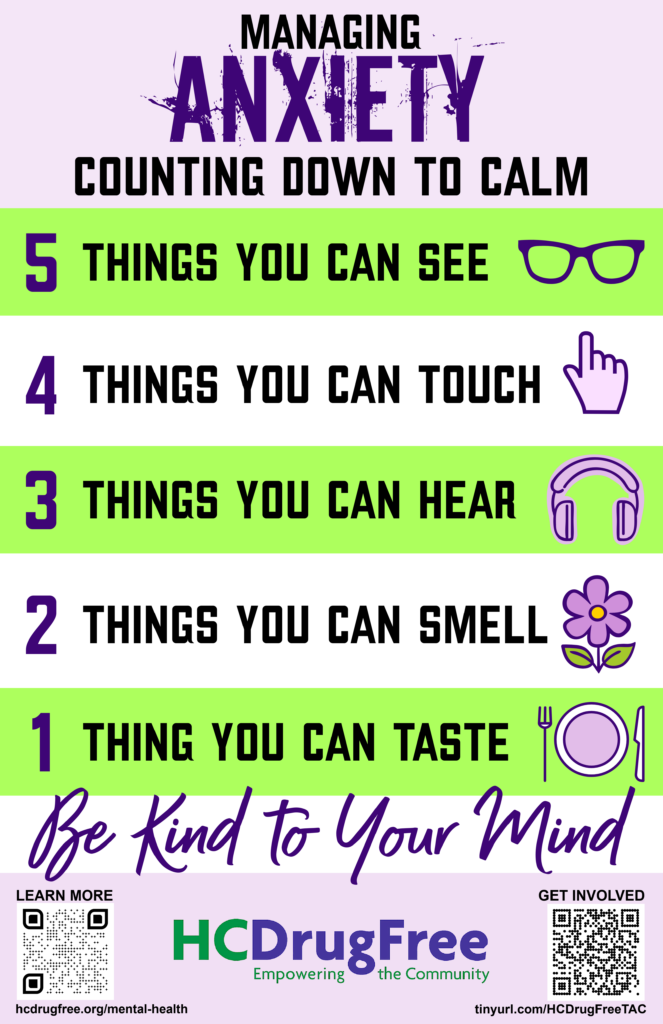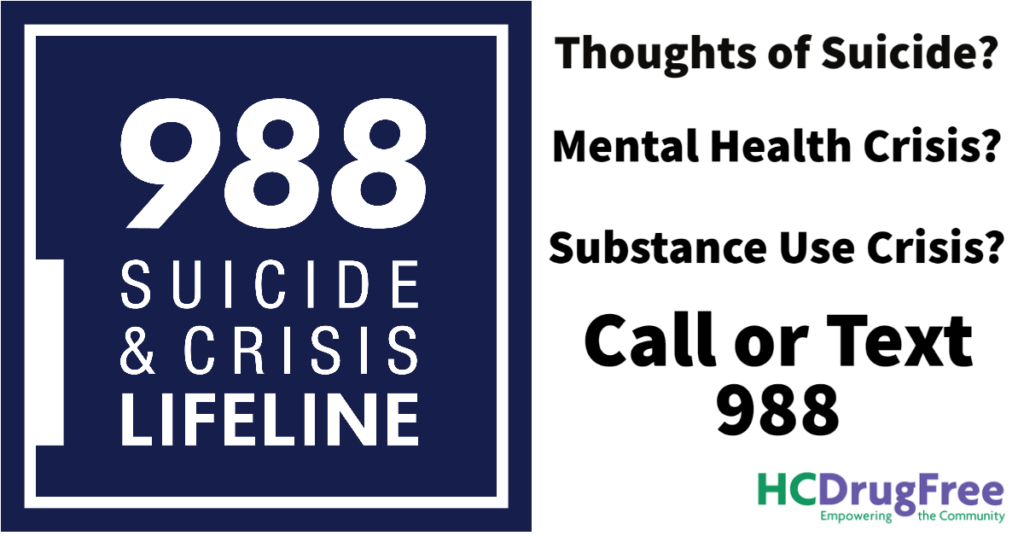What is Mental Health?
Mental health refers to a person’s emotional, psychological, and social well-being. It encompasses how individuals think, feel, and behave, as well as how they cope with stress, relate to others, and make choices. Good mental health contributes to a balanced and fulfilling life, enabling people to handle challenges, maintain positive relationships, and effectively manage their emotions. It involves a sense of self-esteem, resilience, and the ability to adapt to changes and uncertainties. Just as physical health is vital, mental health is crucial for overall well-being and quality of life.
The Impact of Mental Health on Overall Health
Mental and physical health are crucial for overall well-being, and they’re closely linked. Mental health conditions can raise the chances of having long-term physical ailments. Similarly, serious physical illnesses can make someone more likely to experience mental health issues! This is why we say that mental health is HEALTH.
It is vital to take care of both physical health AND mental health as the intricate relationship between the two has a significant impact on overall well-being.
Ending the Stigma
Although public discourse about mental health has improved in recent years, many people are still holding on to outdated negative beliefs and attitudes about mental health. This makes it more difficult for those experiencing mental health difficulties to seek help or share openly about their experiences, often citing shame and embarrassment. Additionally, it is common for mental health conditions to be taken less seriously than physical ailments.
The irony of the public and internalized stigma surrounding mental health is that, according to the CDC, mental illnesses are among the most prevalent health conditions in the United States!
• More than 1 in 5 US adults live with a mental illness.
• Over 1 in 5 youth (ages 13-18) either currently or at some point during their life, have had a seriously debilitating mental illness.
• About 1 in 25 U.S. adults lives with a serious mental illness, such as schizophrenia, bipolar disorder, or major depression.
CDC
What Causes Mental Illness?
It is a common misconception that mental illness is a result of a weak mind, or some other personal flaw. This is not only untrue, it is a harmful stereotype. While there is not a single determining factor, there are several indicators that may contribute to the risk of experiencing mental health issues, including:
- • Genetics and family history
- • Chemical imbalances in the brain
- • Traumatic brain injuries
- • Chronic illness
- • Life experiences, such as stress, abuse, hardship, or social isolation
- • Childhood trauma and abuse
- • Substance use
For a comprehensive list of mental illness and behavioral challenges, please visit the NIH Library of Medicine page here.
Warning Signs of Mental Health Challenges
Experiencing one or more of the following symptoms may be a sign of a mental health issue. It is important to note that experiencing one or more of these signs doesn’t necessarily indicate a mental illness, but it can mean that additional assistance is required.
- Changes in Mood and Emotions
- Persistent sadness, hopelessness, or unexplained mood swings.
- Intense feelings of anxiety, fear, or worry.
- Irritability, anger, or agitation that seems out of proportion.
- Altered Thoughts and Behavior
- Difficulty concentrating or making decisions.
- Rapid and disorganized thinking, confusion, or trouble communicating.
- Changes in sleep patterns, such as insomnia or sleeping too much.
- Unexplained changes in appetite or weight.
- Withdrawal from social activities, friends, or interests you once enjoyed.
- Extreme fatigue or lack of energy.
- Physical Symptoms
- Frequent headaches, stomachaches, or other unexplained physical discomfort.
- Unexplained aches and pains without a clear medical cause.
- Difficulty Coping
- Struggling to handle daily tasks or responsibilities.
- Inability to manage stress or overwhelming feelings.
- Trouble maintaining relationships or engaging in normal interactions.
- Negative Self-Perception
- Excessive self-criticism, guilt, or feelings of worthlessness.
- Persistent negative thoughts or self-destructive behaviors.
- Changes in Behavior or Habits
- Increased use of alcohol or drugs as a way to cope.
- Engaging in risky behaviors or impulsivity.
- Drastic changes in personal hygiene or appearance.
- Heightened Sensations
- Hallucinations (seeing or hearing things that aren’t there).
- Paranoia or excessive fear of others.
- Suicidal Ideation
- Thoughts of self-harm or suicide, or expressing a desire to die.
For immediate assistance, contact Grassroots Crisis Intervention 24/7. They offer a 24-hour crisis hotline, walk-in crisis counseling, a mobile crisis team, substance use services, emergency shelter, and more. Call 410-531-6677 or visit https://grassrootscrisis.org/. Callers may remain anonymous. Individuals may call for a variety of reasons including suicide, family and relationship problems, shelter needs, violent or threatening domestic situations, loneliness or depression, and chemical dependency issues, among others.
Coping with Mental Health Challenges
Coping with mental health challenges involves adopting strategies to manage symptoms and improve well-being. Here are some effective ways to cope:

- Seek Professional Help:
- Consult a mental health professional such as a therapist, counselor, psychiatrist, or psychologist.
- Keep your primary care physician informed so they can act as an additional support.
- Medication:
- Follow prescribed medication plans under the guidance of a psychiatrist or doctor.
- Communicate openly about medication effects and concerns.
- Self-Care:
- Prioritize self-care activities, including regular exercise, balanced nutrition, and adequate sleep.
- Engage in activities you enjoy and that bring you a sense of accomplishment.
- Stress Management:
- Practice relaxation techniques like deep breathing, meditation, or yoga.
- Develop healthy stress management strategies to reduce overall stress levels.
- Social Support:
- Connect with friends, family, or support groups to share experiences and feelings.
- Build a strong social network that provides emotional support.
- Mindfulness and Relaxation:
- Practice mindfulness and meditation to stay present and manage overwhelming emotions.
- Engage in relaxation exercises to reduce anxiety and tension.
- Set Realistic Goals:
- Break tasks into manageable steps to prevent feeling overwhelmed.
- Set achievable goals to build a sense of accomplishment.
- Healthy Lifestyle:
- Limit alcohol and substance use.
- Maintain a healthy routine with regular meals, exercise, and sleep.
- Creative Outlets:
- Explore creative activities like art, music, writing, or gardening as outlets for expression and stress relief.
- Positive Distractions:
- Engage in activities that divert your attention away from negative thoughts, such as reading, watching movies, or spending time with pets.
- Educate Yourself:
- Learn about your condition to better understand symptoms and treatment options.
- Access reputable resources and educational materials.
- Mind-Body Techniques:
- Practice techniques like progressive muscle relaxation, guided imagery, or biofeedback.
- Stay Connected:
- Maintain regular contact with supportive individuals in your life.
- Engage in social activities and maintain a sense of connection with others.
- Set Boundaries:
- Establish healthy boundaries to protect your well-being and prevent overextending yourself.
Coping strategies can vary based on individual needs and the specific nature of the mental illness. It’s important to work with a healthcare professional to develop a personalized coping plan that best addresses each unique situation.
Video Resources
Resources
NAMI: National Alliance on Mental Illness
NIH: National Institute of Mental Health
SAMHSA: What is Mental Health?
Local Resources
211 Maryland: Maryland Mental Health Text Message Support
Grassroots Crisis Intervention
Howard County Local Health Improvement Coalition





